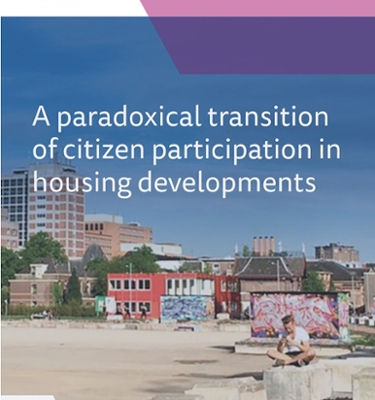A paradoxical transition of citizen participation in housing developments
HoofdstukCurrent planning policies place great expectations on citizen participation to resolve complex societal and spatial challenges such as urban renewal and housing development.
This essay explores what transitions in citizen participation have taken place on this issue in the Netherlands and to what extent citizen participation in its current form can address the complex socio-spatial challenge of providing affordable housing in cities. The essay introduces a paradox of the transition in participation in housing development in the Netherlands as part of broader transformations in Dutch spatial planning and development: in spite of increased institutionalization of participation, the actual citizens seem to have been served less and less. There is potential for the inclusion of citizen participation in the planning processes to encourage acceptance where resource distribution creates conflicts (i.e. affordable housing markets and lack of supply) for more effective cooperation during implementation. However, giving citizens more say in small parcels of spatial development does not disguise and overrule the structural forces in policy and real estate market trends that have grown in the last decades and push out lower and middle income groups from the city. This essay reviews state-of-the-art literature on the evolution of citizen participation, co-creation, and decision-making structures and processes in spatial planning and housing, and discusses participation trajectories in urban developments with housing functions in Amsterdam (Havenstraatterrein, Marineterrein) and Groningen (Suikerunie, Ebbinge), and Almere (Oosterwold) to showcase the paradoxical transition.

